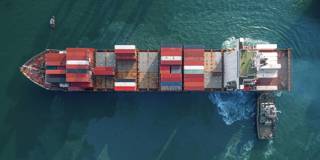Notwithstanding the latest truce between the United States and China, the world has entered a dangerous new phase of great-power competition. Under such conditions, smaller powers such as European and Pacific-Rim countries will stand no chance of enjoying fair and open trade unless they form a united front.
PARIS – Thanks to the efforts of Japanese Prime Minister Shinzo Abe, the recent G20 summit in Osaka avoided the worst possible outcomes. That counts as a victory in the age of US President Donald Trump. Among other things, G20 leaders issued a final communiqué affirming the importance of free and open trade. And on the sidelines of the summit, the United States and China agreed on a trade-war armistice, while the European Union announced the signing of new free-trade agreements with Vietnam and the Mercosur bloc (Argentina, Brazil, Paraguay, and Uruguay).

PARIS – Thanks to the efforts of Japanese Prime Minister Shinzo Abe, the recent G20 summit in Osaka avoided the worst possible outcomes. That counts as a victory in the age of US President Donald Trump. Among other things, G20 leaders issued a final communiqué affirming the importance of free and open trade. And on the sidelines of the summit, the United States and China agreed on a trade-war armistice, while the European Union announced the signing of new free-trade agreements with Vietnam and the Mercosur bloc (Argentina, Brazil, Paraguay, and Uruguay).